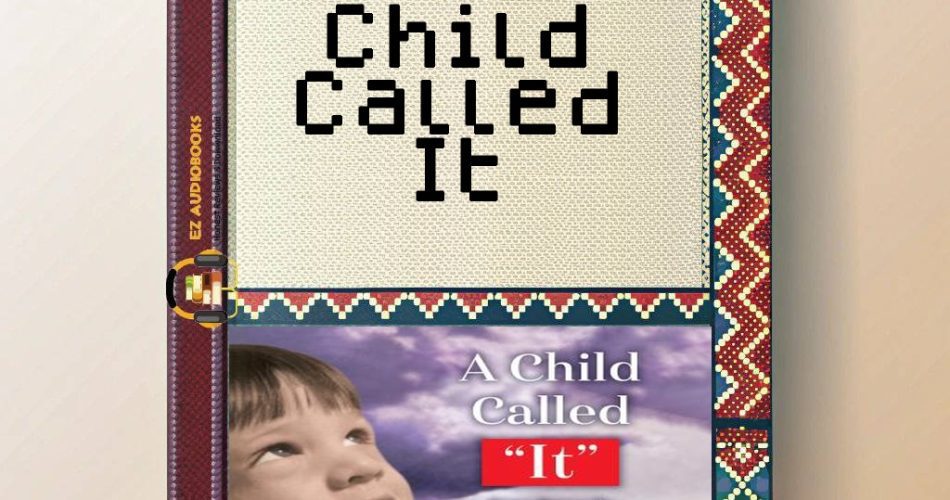Audiobook Sample
Listen to the sample to experience the story.
Please wait while we verify your browser...
- Title: Child Called It
- Author: Dave Pelzer
- Narrator: Brian Keeler
- Length: 03:48:12
- Version: Abridged
- Release Date: 18/07/2007
- Publisher: Recorded Books
- Genre: Biography & Memoir, General
- ISBN13: 9.78E+12
Let me start by saying this: I’ve analyzed hundreds of audiobook adaptations for my ‘Future of Stories’ podcast, but few have shaken me like Dave Pelzer’s “A Child Called ‘It'”, narrated by Brian Keeler. This isn’t just an audiobook – it’s an emotional earthquake that lingers in your bones long after the final chapter.
“The Listening Experience: More Than Words Can Capture”
Brian Keeler’s narration is nothing short of transformative. His voice carries the weight of Pelzer’s trauma with a rawness that text alone could never convey. There’s a particular moment – when young Dave describes being forced to eat his own vomit – where Keeler’s delivery cracks ever so slightly. That subtle vocal tremor did something remarkable: it made the horror “real” in a way my Kindle version hadn’t. It reminded me of my BookTok breakdown of “The Seven Husbands of Evelyn Hugo”, where listeners flooded the comments about how a narrator’s breathing choices revealed character depth. Here, Keeler uses similar techniques – pacing, strategic pauses, controlled emotion – to amplify Pelzer’s words without overpowering them.
“Why Audio Enhances This Memoir”
1. “The Sound of Survival”: Pelzer’s story is about enduring the unendurable. Hearing it aloud adds a visceral layer – the rhythm of abuse, the silence of neglect, the eventual crescendo of hope. It’s audio as time machine, transporting you into that toxic kitchen in 1970s California.
2. “The Power of Performance”: Keeler avoids melodrama, letting Pelzer’s stark prose speak for itself. His restraint makes the material more devastating – a lesson I wish more memoir narrators would learn (looking at you, over-performative celebrity memoir readers).
3. “Accessibility as Ally”: For listeners who might struggle with the physical act of reading such intense material, the audiobook provides critical distance while maintaining emotional impact.
“Cultural Resonance in the Digital Age”
What fascinates me most is how this 1995 memoir has found new life through digital formats. On my podcast, we recently compared five ways to experience “Project Hail Mary” – each medium offering unique insights. Similarly, “A Child Called ‘It'” gains fresh urgency in audio. In an era where trauma narratives flood TikTok and Instagram, Pelzer’s story stands apart for its unflinching honesty. Unlike the performative vulnerability we often see online, this is survival without hashtags or viral hooks – just one boy’s truth, masterfully preserved in audio.
“Critique & Considerations”
No review would be complete without noting the audiobook’s limitations:
– “Trigger Warning Necessity”: The publisher should explicitly timestamp intense sections (e.g., Chapter 3’s graphic abuse scenes) for listeners who need to prepare emotionally.
– “Missed Audio Opportunities”: While Keeler excels at narration, subtle sound design (a distant slamming door, muffled arguing) could have deepened immersion without compromising the memoir’s integrity.
“Final Verdict”
For fans of memoirs like “Educated” or “The Glass Castle”, this audiobook is essential listening. It’s not an easy experience, but it’s an important one – the kind that lingers in your headphones and your heart. On my personal scale of narrative impact (where 1 is ‘meh’ and 10 is ‘life-changing’), “A Child Called ‘It'” earns a 9.5 for audio adaptation excellence.
Pro tip: Listen with a friend or book club – you’ll need debriefing time.
Keep listening bravely, – Sophie Bennett (Find me dissecting more audiobooks @FutureOfStories)

